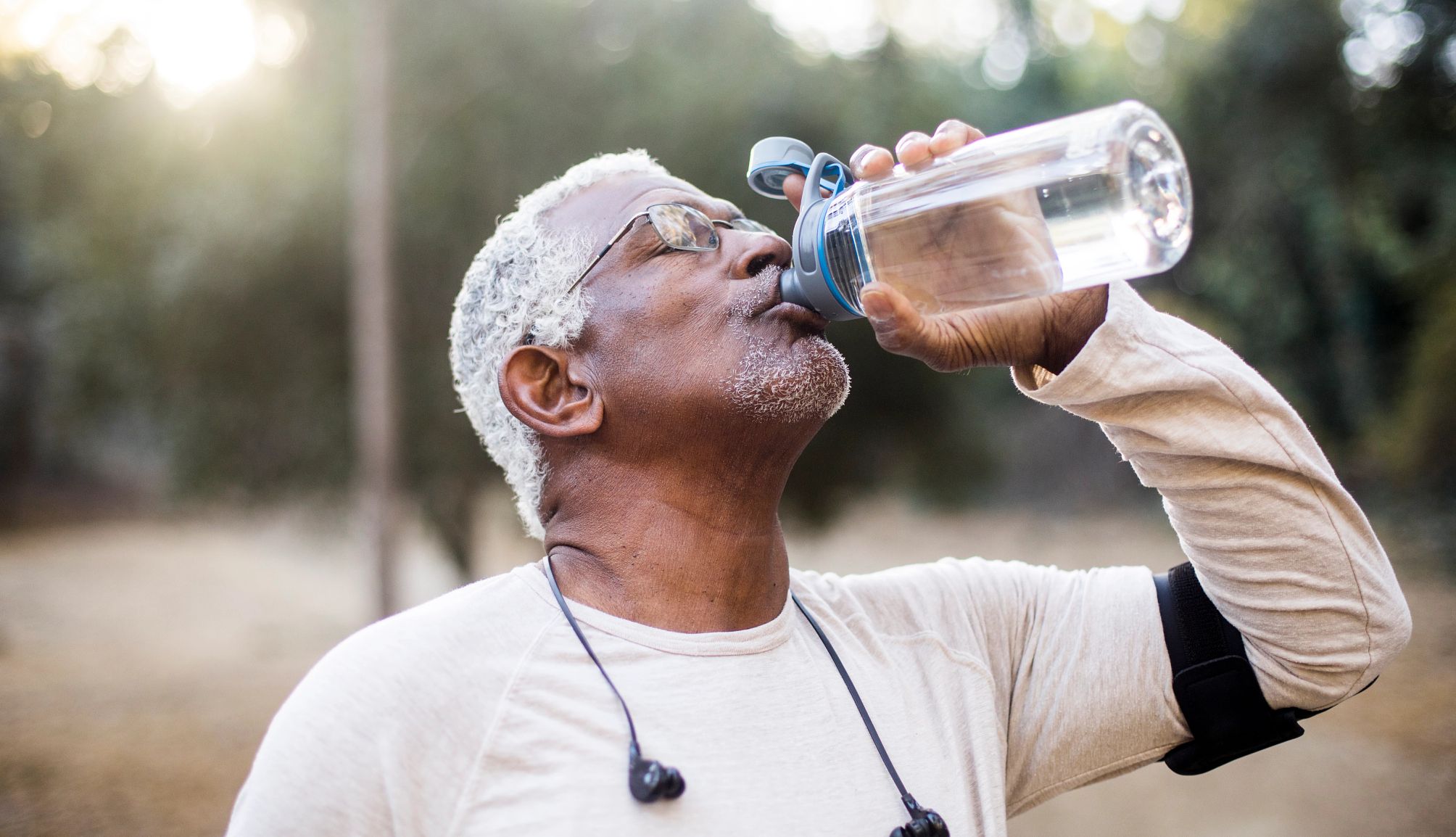AARP Hearing Center


It’s not your imagination: It really is hotter than when you were a kid. In fact, 2023 was the hottest year on record since 1850, according to the National Oceanic and Atmospheric Administration. And the nine years from 2014 to 2022 round out the top 10 warmest.
Climate experts warn that bouts of extreme heat are going to become more common as global temperatures continue to rise. That’s bad news for the growing population of older adults, who are more likely to get sick from heat — even die from it.
In 2023, soaring temps sent nearly 120,000 people in the U.S. to emergency rooms, a 2024 report from the Centers for Disease Control and Prevention (CDC) shows.
Heat-related deaths have been increasing in recent years, with approximately 2,302 occurring in 2023, up from 1,722 in 2022, according to federal data, though other research suggests the number is much higher. A study published in 2020 in the journal Environmental Epidemiology finds an average of 5,608 deaths are attributable to heat each year. A study from a team of Duke University researchers estimates that 12,000 Americans die annually from heat-related causes.
Regardless of the total tally, most people who die from the heat are over the age of 50, the National Institute on Aging says.
“It has everything to do with our body’s ability to deal with heat as we age,” Aaron Bernstein, M.D., told AARP in 2022, when he was the interim director of the Center for Climate, Health and the Global Environment at the Harvard T.H. Chan School of Public Health. Bernstein is now the director of the National Center for Environmental Health and the Agency for Toxic Substances and Disease Registry at the CDC. “People who are older, our bodies may not be able to dissipate heat as well as people who are younger. We also tend to have more chronic health problems and may take more medications that affect our body’s ability to deal with heat.”
Here’s a closer look at why heat is such a health risk for older adults, and what you can do to stay safe as heat waves become more frequent.
Cooling down the body becomes harder
People get into trouble when they can’t cool themselves down. That’s when heat exhaustion can occur, often marked by dizziness, fatigue and a weak, rapid pulse. If that goes untreated, heatstroke can set in, bringing with it the potential for long-term organ damage or death.
Sweating is the top way that humans cool themselves, Bernstein says. It’s not the sweat itself that is particularly cooling but rather the evaporation process. It takes energy to evaporate sweat off the skin, and the energy source in this equation is heat. So as sweat switches from liquid to vapor, heat leaves your body and you start to cool down.
At-risk adults on the rise
Temperatures are increasing and so is the aging population. By 2050, roughly 200 million more older adults worldwide are expected to face exposure to dangerous heat, compared with now, research published in Nature Communications suggests.
“The effects are projected to be the most severe in Asia and Africa, which may also have the lowest adaptive capacities,” Deborah Carr, professor of sociology at Boston University and a coauthor of the study, said in a statement.
Sweat glands become less effective with age. “They can’t pump out as much sweat as quickly,” Daniel Van Durme, M.D., former chief medical officer at the Florida State University College of Medicine, told AARP.
What’s more, several medications common among older adults can interfere with how efficiently the body sweats or handles heat, Van Durme said, including some antihistamines (to ease allergy symptoms) and drugs used to treat overactive bladder. Certain antidepressants and some blood pressure medicines can also hinder the body’s ability to cool itself — and experts say there are likely many more that inflict this effect.
Another disadvantage for older adults is heat’s impact on the heart. Hand in hand with sweating, the body releases heat by increasing blood flow to the skin to push the heat away from the core. This requires the heart to work harder. “And if you have heart disease, that puts strain on an already potentially weak heart,” Bernstein says. “So you see people during heat events having heart attacks, arrhythmias, strokes — there’s a big risk for that.”




































































More From AARP
How Much Do You Know About Staying Safe in the Summer Heat?
See how prepared you are for warmer weather
AARP Smart Guide to Sun Protection
SPF is just one important factor — here are more tools that can help in preventing damage from harmful rays